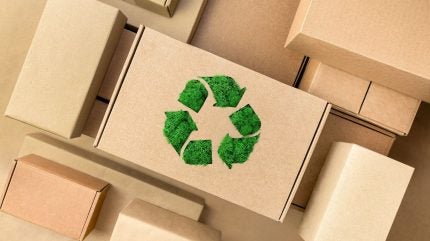
A new €65m ($69.97m) sorting plant for lightweight packaging officially opened its doors in Ennshafen, Austria, on Friday (28 June).
The TriPlast sorting plant is a joint venture (JV) between ARA, Bernegger, and Der Grüne Punkt and significantly boosts Austria’s ability to meet its ambitious recycling targets.
Specifically, the country aims to double its plastic packaging recycling rate by 2025.
TriPlast plays a pivotal role in achieving this goal by sorting 100,000 tonnes (t) of plastic and metal packaging annually.
This translates to processing half of Austria’s lightweight packaging, transforming it into valuable secondary raw materials for further recycling.
These high-quality materials can be used to manufacture new packaging or a wide range of products, from shampoo bottles to automotive parts.
Tripling sorting capacity
At 20t per hour, the TriPlast sorting plant boasts a sorting capacity three times greater than existing plants in Austria.
This impressive feat is achieved through technology, including 2.5km of conveyor belts, 160km of cables, and near-infrared sorting systems.
The plant’s efficient design also minimises its footprint with a 25m hall height.
“With our strategic partnership and the cross-border joint venture, we are preparing Austria and the EU for the recycling quotas from 2025. TriPlast can process an incredible 20 tonnes per hour and is three times the size of existing plants in Austria,” emphasised ARA CEO Harald Hauke.
“We want to reduce Austria’s dependence on raw materials and provide the industry with high-quality raw materials.”
Strategic location and sustainability
The Ennshafen location offers a key advantage: trimodal connectivity via truck, rail, and ship.
The plant also benefits from the site’s self-sufficient, sustainable energy supply, minimising its overall environmental impact.
“The plant network at the site enables a self-sufficient supply of sustainable energy,” said Kurt Bernegger, managing director of Bernegger.
“As a result, we provide low-emission and climate-friendly secondary raw materials for a successful circular economy and take joint responsibility for our environment and future generations.”
Boosting the local economy
Beyond its environmental benefits, the TriPlast sorting plant contributes to the local Upper Austria economy.
The facility not only creates new green jobs but also strengthens the region’s position as a European leader in sustainable industrial practices.
TriPlast’s arrival marks a significant step forward for Austria’s recycling infrastructure and paves the way for a more sustainable future.



